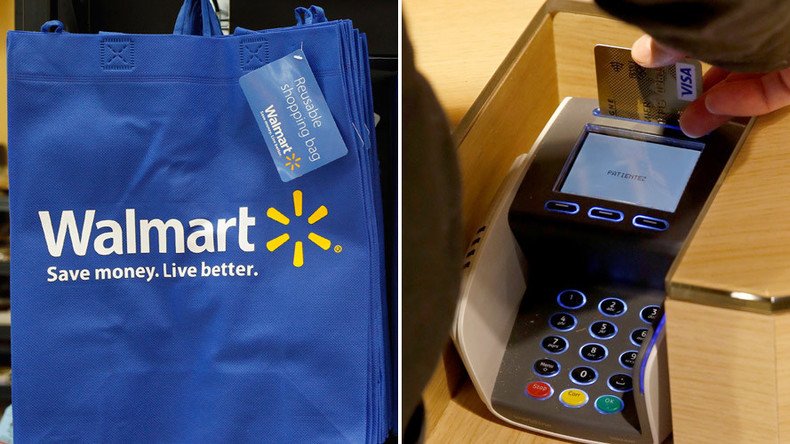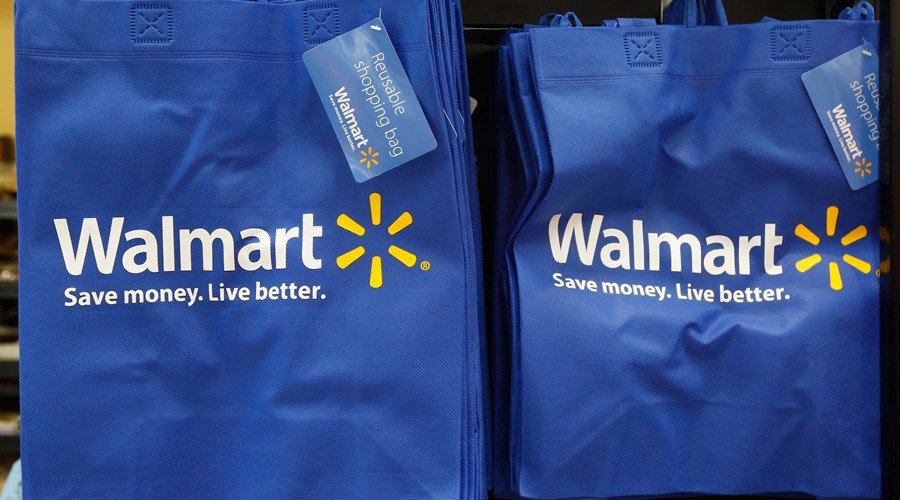Dollar signs: Walmart sues Visa over debit card signature authorizations

Signatures may not offer as much security as PIN numbers for debit card purchases, but it will take a jury trial for Visa to eliminate the more traditional option. At least, Walmart hopes so, having sued the financial services company in a New York court.
Wal-Mart Stores Inc. is suing Visa Inc over its policy of allowing chip card users to sign their names rather than be required to use a PIN number, resulting in the retail conglomerate being forced to pay fees to Visa for every signature.
‘No choice’: Ex-prisoners paying exorbitant debit card fees almost no one else pays https://t.co/aWfaG7sp2Jpic.twitter.com/VVR76uUOXb
— RT America (@RT_America) November 7, 2015
Chip cards are new in the US, but more popular elsewhere in the world, especially Europe, for their security advantage. The traditional strips on cards that carry financial data can be copied or detected by skimmers discretely placed over actual swipe machines in ATMs, at gas pumps or in stores. Chips, or EMV microchips as they’re also called, produce unique codes at each transaction, keeping fraudsters at bay.
The lawsuit, filed in a New York court Tuesday, alleges that Visa’s system is not in step with federal law and puts customers’ financial security at risk, as well as leaving Walmart having to foot the bill on fraudulent purchases, The Wall Street Journal reported.
"PIN is the only truly secure form of cardholder verification in the marketplace today, and it offers superior security to our customers," Walmart said in a statement Tuesday. "And Visa has acknowledged in many other countries that Chip and PIN offer greater security. Visa nevertheless has demanded that we allow fraud-prone signature verification for debit transactions in our U.S. stores because Visa stands to make more money processing those transactions."
Walmart filed court documents claiming 91 percent of false debit card purchases are completed with signatures. The suit also states that 70 percent of all card-based transactions involve debit.
Incentives are largely behind why the more secure PIN option is not mandatory. Banks that use Visa’s financial instruments to extend credit want the cards to be used as often as possible. They fear PIN numbers are less convenient than letting customers simply scrawl their names. The PIN numbers also require much more software power at a higher price than a signature system, not to mention replacing the cheaper code strip.

Obviously both Walmart and Visa want to make as much money as possible while keeping their customers satisfied, but while they may be butting heads in court, they also face mutual competition from digital wallet services like Apple Pay, Google Wallet, Android Pay, Samsung Pay and PayPal.
Walmart does offer such a service, Walmart Pay, and has invested more than $5 billion to compete against Amazon.com and others. In addition, Walmart closed over 150 of its locations this year and projected a fall in profits before any of the investment benefits are seen, WSJ reported.
‘That was our rent money’: Woman confronts barista who stole $212 from her credit cardhttps://t.co/jIHJGHWMHQpic.twitter.com/ZxCVzPUojN
— RT America (@RT_America) January 5, 2016













